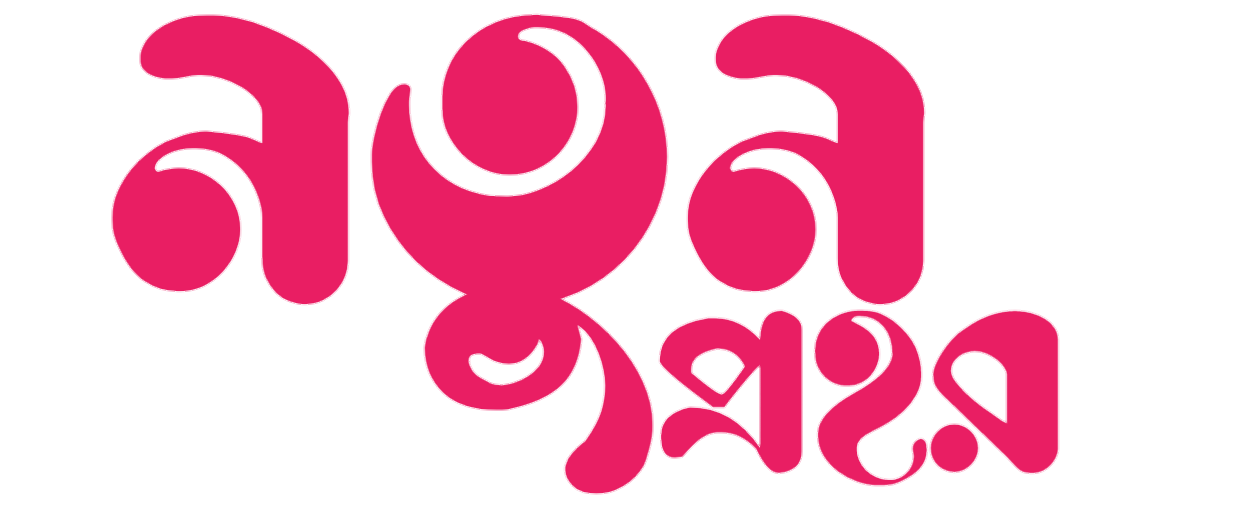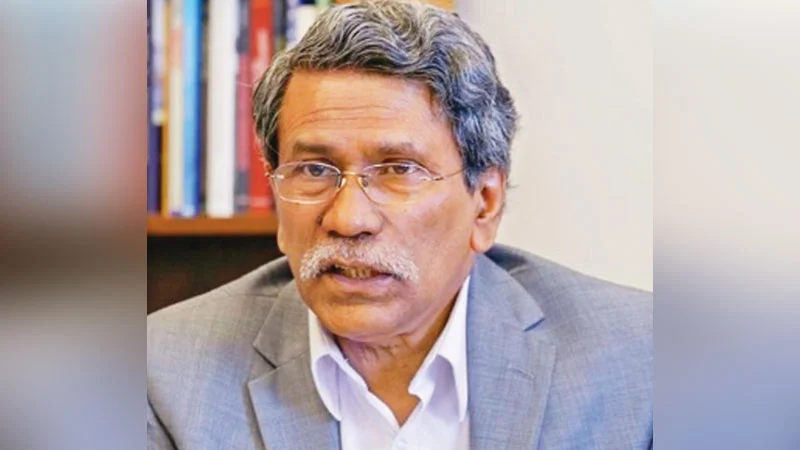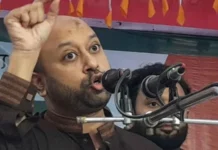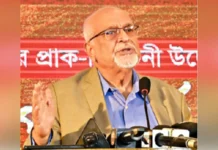The issue of ending dictatorship in the state system is being considered with great importance in the context of constitutional reform, said Professor Ali Riaz, head of the commission. For this, they are preparing a proposal with recommendations for establishing a balance of power, ensuring civil rights, equality, human dignity and justice for the individual as promised in the declaration of the Liberation War, and decentralizing the judiciary. In addition, so that the same person cannot establish a dictatorship by occupying multiple positions, the Prime Minister is also being considered.
Professor Ali Riaz said these things in an exclusive interview with Samakal. At that time, he said that they will submit the draft of reform proposals and recommendations by January 7, the deadline set by the government.
In an interview given on Tuesday, Ali Riaz, the head of the Constitutional Reform Commission, further said that they have held meetings with representatives of various classes, professions and organizations as partners in formulating these recommendations. Responding to their call, 28 political parties, alliances and other parties and organizations have submitted written proposals. The opinions of about one lakh people have been taken through a public opinion survey conducted by the commission's own website and in collaboration with BBS. The draft of the reform proposal is being prepared by considering everyone's opinions with great importance. He also mentioned that the commission has reviewed the constitutions of 121 countries to prepare the reform proposal.
Professor Riaz said that in the matter of constitutional reform, no opinion was taken from the Awami League, the party that committed genocide in the July Uprising and its supporters, and the parties and organizations that have been cooperating and legitimizing the dictatorship in the last 15 years. This policy was created by the people who gave their blood and lives in the July Uprising. The Constitutional Reform Commission has followed that policy.
After the Awami League government fell in the face of a student uprising on August 5, an interim government led by Nobel laureate Professor Dr. Muhammad Yunus was formed on August 8. They have formed six reform commissions for the purpose of state reform activities. Among them, political scientist Professor Ali Riaz has been appointed as the head of the Constitution Reform Commission. In an interview with Samakal, Ali Riaz shed light on the activities of this commission and various aspects of their proposals.
Highlighting the issues that will be important in formulating the reform proposal, Ali Riaz said, "What we are giving the most importance to, which our partners have said and which has also emerged from our analysis and review, is that the constitution must make such arrangements that there is no centralization of power. Because we have seen that since the 1972 constitution and especially through the 15th amendment, there has been centralization of power. We have spent more than 15 years in a personal dictatorship. As a result, we have to create institutions for the balance of power and accountability constitutionally."
He said, "Civil rights also need to be ensured in the constitution. We have seen that civil rights have been violated in various ways in the past. We can actually see that process from the 1972 constitution. The more civil rights and fundamental rights that have been given, the more conditions have been imposed on them. As a result, these rights are no longer there. Therefore, we are trying to find out what strategies and ways can be used to ensure the rights of citizens in the constitution."
Ali Riaz said, 'There were some promises in the declaration of the 1971 Liberation War - equality, human dignity and social justice. We will call that the first constitution of Bangladesh. But justice for the people could not be ensured. One of the reasons for this is that the judiciary could not actually work independently. Although the 1972 constitution and later ones talk about creating a difference and distance between the executive branch and the judiciary and giving it independence. But again, the constitution itself has provisions to prevent it from being implemented in various ways. Therefore, in any case, to ensure justice, the independence of the judiciary must be ensured. Access to justice must be brought to everyone as much as possible. That means decentralization must be done. We have taken these things into consideration very seriously and tried to formulate our recommendations accordingly.'
Regarding the demand from various quarters to establish a balance of power between the President and the Prime Minister in the context of constitutional reform, he said, "The balance of power should not be only between the President and the Prime Minister. Because, we also see that the same person abuses power by occupying multiple positions. For example, since the Prime Minister is simultaneously the leader of the party, the head of the party, the leader of the parliament, etc., it is very easy to abuse the power that comes into his hands. This establishes a dictatorship. We are working taking these into consideration as well."
Regarding Article 70 of the Constitution, the head of the Reform Commission said, 'Article 70 will remain. But Article 70, in its current form and nature, and the way it has tied the hands and feet of members of parliament and made them subordinate to individuals, must be removed. Because by keeping Article 70 as it is, the power of the Prime Minister cannot be controlled and a strong and independent parliament cannot be established. We have also seen that the existing Article 70 is not right for a democratic constitution and democratic practice. As a result, a major change will come here. But Article 70 will remain. It will remain in this sense - there will be something called Article 70.'
Regarding the provision of Islam as the state religion in the constitution, he said, "We have received various opinions on this matter. We are considering them."
Regarding the four fundamental principles of the constitution, Ali Riaz said, "It is very unfortunate that the essence of the ideals that were identified in the liberation war of Bangladesh or the ideals on the basis of which a people's war was waged was not properly mentioned in the 1972 constitution. As a result, we are taking this issue into consideration and taking the views of the stakeholders. And in considering this, we are not only taking the views of the stakeholders of the country. We have reviewed the constitutions of 121 countries, including Bangladesh. We have also analyzed how these places are present in them, how much they are there, and why they are there. In light of that, we will give some recommendations."
He said, "We will make proposals and some recommendations for constitutional reform. But we cannot say how much of these proposals and recommendations will be accepted in the end. We do not have the opportunity to say. But we can say this much, that in making recommendations, we have given priority to the spirit of the July Uprising and the views of the people of the country."







